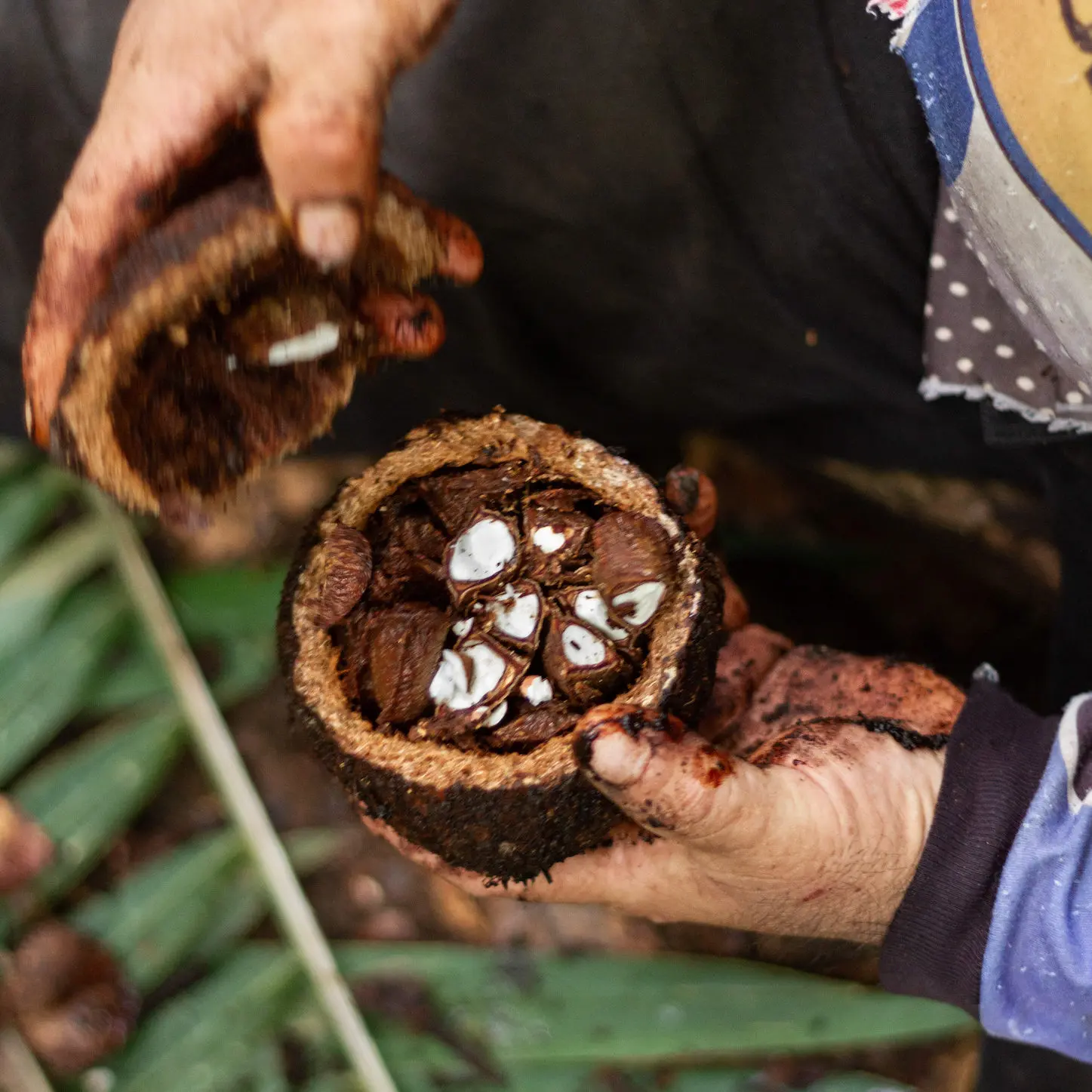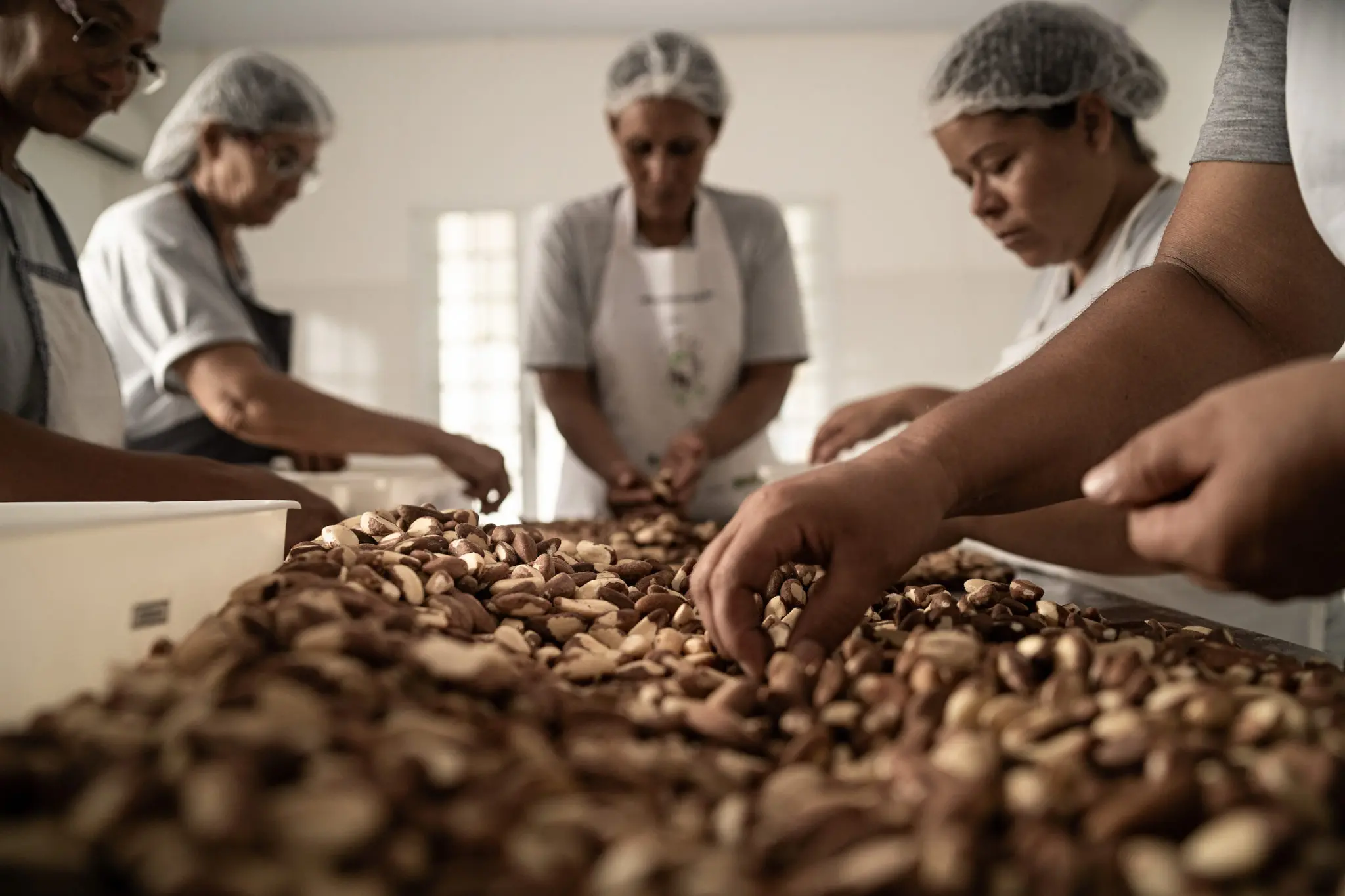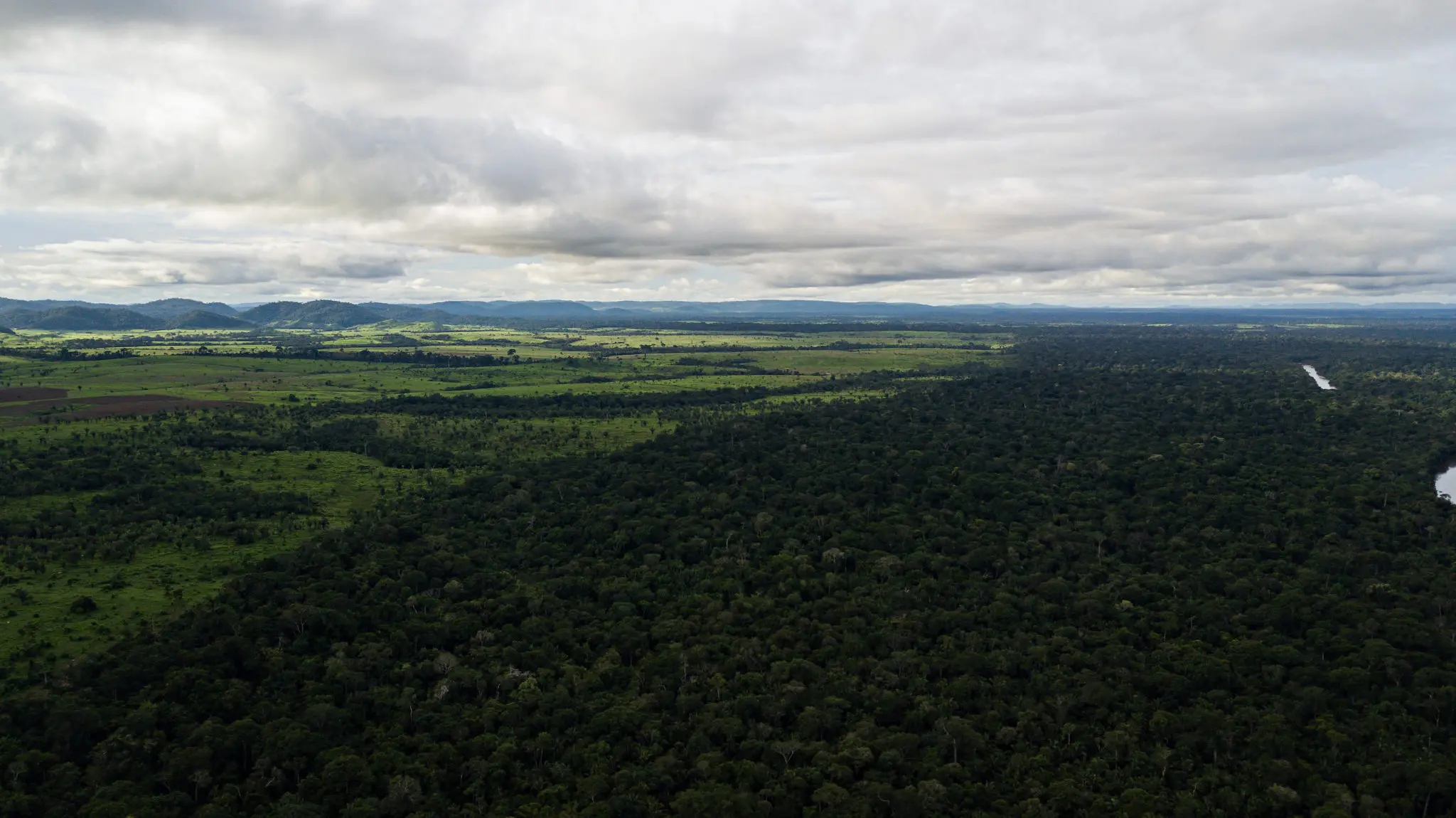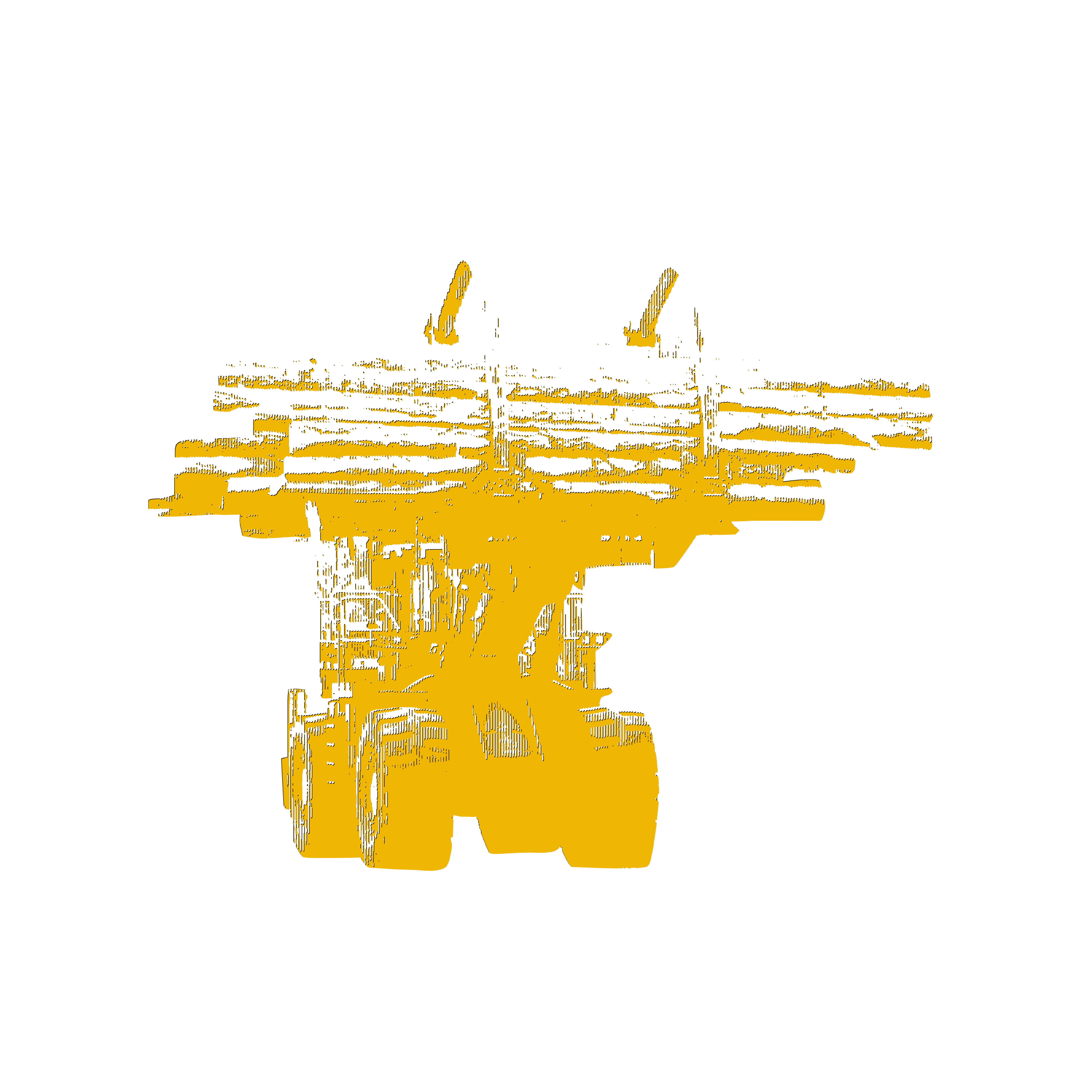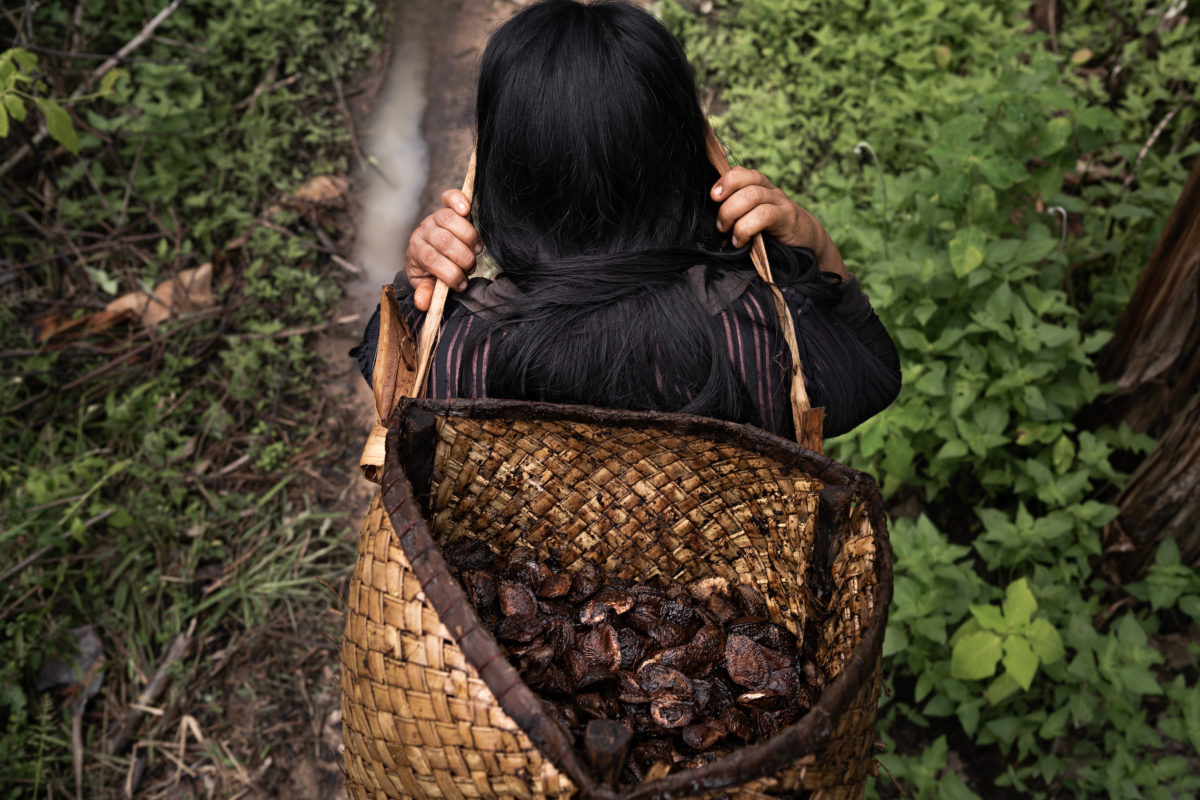
This story excerpt was translated from Portuguese. To read the original story in full, visit Mongabay. You may also view the original story on the Rainforest Journalism Fund website here. Our website is available in English, Spanish, bahasa Indonesia, French, and Portuguese.
"Whoever sees the nut bagged here thinks it's easy, but out there in the bush it's suffering. You have to collect them, cut them, gather them, bring them to the village, wash them, dry them, and bag them. That is why my people say: value our work," says Waratan, a Zoró leader.
A traditional food of the Zoró, the Brazil nut has been consolidated in recent years as a way to combine income generation with the preservation of the standing forest — in the case of the Zoró, a 356,000-hectare territory in the northwest of Mato Grosso.
As a nonprofit journalism organization, we depend on your support to fund journalism covering underreported issues around the world. Donate any amount today to become a Pulitzer Center Champion and receive exclusive benefits!

